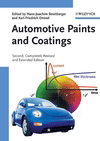Inclusion and Diversity Receive More Prominence in Royal Society of Chemistry Prize Reforms

LONDON — Efforts to make science a more inclusive and diverse place to learn and work are to be given annual recognition by the Royal Society of Chemistry (RSC).
The RSC has been an active voice in promoting greater equality and fairness in the chemical sciences, and has launched a suite of initiatives to remove the barriers that exist for under-represented groups. Announcing it will now expand the biennial Inclusion & Diversity Prize to be an annual accolade, the RSC says it offers a positive incentive for those working across the entire chemical sciences to join the efforts to achieve a positive, inclusive and thriving community. The move comes as part of a wide-reaching revamp of its recognition portfolio to better reflect the way science is carried out today.
Dr. Helen Pain, CEO of the Royal Society of Chemistry, said, “Our recognition portfolio is one of the oldest in science and carries significant international prestige. When we conducted our review, we promised that our prizes should not only celebrate great science, but also recognise the leaders who go above and beyond to break down barriers in the chemical sciences and open up new and extraordinary opportunities.
“We hope that awarding this prize annually will further incentivise people and institutions to research and implement policies and initiatives that create a more inclusive community. It also celebrates amazing examples and provides inspiration on what we can all do to make science a more diverse – and ultimately more productive – environment.”
The 2021 Inclusion and Diversity Prize was won by BlackinChem, a movement started in the United States that reached around the world to celebrate Black excellence in chemistry and build a global community of Black chemists and their supporters. In previous years, the prize has been awarded in recognition of individuals’ work in the areas of teaching as well as disabilities.
Dr. Ale Palermo, Senior Manager, External Relations at the RSC, said, “Equality, diversity and inclusion are key to ethical and successful science. By harnessing talent inclusively, science will go further faster. Diverse skills and perspectives are important, as scientists contribute to tackling global challenges and making life better for current and future generations.
“Since we launched our Inclusion & Diversity Prize in 2017, we have been honoured to recognise three extraordinary initiatives. In addition to celebrating the winners and their achievements, the prize also provides a showcase and inspiration for future nominees and for the community.”
The RSC has launched a number of reports and initiatives to make the chemical sciences and wider sciences a fairer and more equitable space. Among these were 2018’s Breaking the Barriers report on women’s retention and progression in the chemical sciences and the Exploring the Workspace for LGBT+ Physical Scientists report. From these, the RSC identified several actions that would help create a more diverse environment, and with the support of the Chemists’ Community Fund these included launching Grants for Carers to overcome issues related to combining parenting or caring duties with career progression, and a bullying and harassment support service to provide confidential support for those affected in any way by workplace bullying and harassment. Later this year, the RSC will launch a report focusing on race and ethnicity inequities in the chemical sciences.
In response to specific concerns about gender bias in publishing revealed in its 2019 Diversity Landscape of the Chemical Sciences report, last year the RSC launched A Framework For Action in Scientific Publishing, designed to establish founding principles that eliminate bias.
Applied to its own portfolio of 46 journals, a further 43 international scientific publishers have signed up to the RSC’s scheme, covering more than 15,000 journals ongoing publications across the world, as well as one-off publications such as books and special reports.
Among those to have signed up for the scheme are some of the largest and most respected scientific publishers in the world, including SAGE, Elsevier, Wiley, BMJ Journals, the American Chemical Society Publications and Springer Nature.
The Royal Society of Chemistry’s 2022 Inclusion and Diversity Prize opens for nominations on Nov. 3, 2021. To find out more, visit rsc.li/prizes.
Looking for a reprint of this article?
From high-res PDFs to custom plaques, order your copy today!







